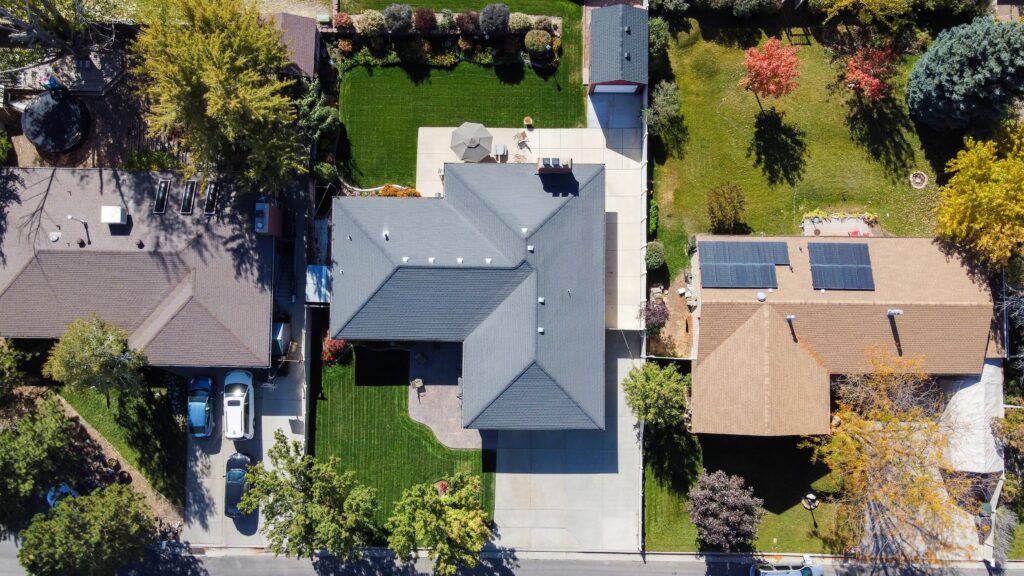Home insurance helps protect your home and its contents, as well as your liability if someone is injured on your property. This coverage can be a hefty cost for homeowners, especially those with high-end homes or who live in riskier areas. Premiums can also increase if your area is subject to frequent natural disasters or if you add amenities like a pool or hot tub.
Fortunately, there are ways to lower the cost of home insurance so it doesn’t take such a big bite out of your monthly budget. Before you do anything, contact the professional agents at YourPolicy. They know insurance and will help you to find the best coverage for your lifestyle and your budget.
In the meantime, here are a few tips to help lower the cost of your home insurance.
Six Tips to Lower Home Insurance Costs

Ask For a Discount
When was the last time you asked your insurance company for a discount? In addition to being diligent about making payments on time and keeping your property maintenance up to date, requesting a lower rate is another one of the easiest ways to lower your home insurance costs. Some insurers may offer a lower rate to new customers, or to current customers who have gone for several years without a claim. Others may offer a discount if you bundle your auto and home policies into a single package. If you’re a senior citizen, you may be eligible for a senior discount.
Home Insurance: Raise Your Deductible
Deductibles are the amount of money that is your responsibility before your insurance company covers your loss. The higher the deductible, the lower your premiums. Most insurance companies recommend a deductible of at least $500. If you raise your deductible amount to $1,000, you can save as much as 25%. It’s important to realize that if you live in an area that is subject to certain damage like windstorms, hail storms, or earthquakes, you may be able to have separate deductibles.
Upgrade Home Security
You may be surprised at how home security systems can reduce the cost of your insurance. Sensors and cameras are among the most common security systems installed by homeowners today. An alarm system can provide added protection against burglary and vandalism. Some companies will cut your premium by as much as 15 to 20 percent if you install a sophisticated sprinkler and fire/burglar alarm that rings through to the police department or fire station.
These systems can be expensive, and they don’t all qualify you for a discount. Call a YourPolicy agent before you commit to purchasing any security system. They will be able to advise you on how much money you’ll save on premiums.
Make Your Home Disaster Resistant
Check with your insurance agent to determine what steps you can take to make your home more resistant to windstorms and other natural disasters. You may be able to save by reinforcing your roof or adding storm shutters. If you have an older home in an earthquake-prone area, consider having it retrofitted to better withstand those events. In addition, modernizing your heating, plumbing, and electrical systems can reduce the risk of fire and water damage.
Maintain a Good Credit Rating
Establishing a strong credit history can decrease your insurance costs. Insurers are increasingly using credit information as a factor in pricing your home insurance policy. In most states, your insurer must advise you if your credit rating influenced your costs so that you can immediately verify the accuracy of this information. In any case, protect your credit standing by paying your bills on time, and keeping credit balances low. Check your credit record regularly and have errors corrected promptly so that your record remains accurate.
Review the Value of Your Possessions Yearly
You want to be sure that your policy covers major purchases or home remodeling. However, you don’t want to spend money for extra floater coverage ( insurance for items not covered by your standard policy). Checking the value of your possessions yearly will prevent you from overspending. For example, if your five-year-old fur coat is no longer worth the $5,000 you originally paid for it or your computer is obsolete, you’ll want to reduce or cancel your floater coverage for those items.
Final Thoughts
Your home is your most expensive personal asset, and it’s essential to have peace of mind that your risk is minimized in the case of an unexpected loss. However, it pays to keep your coverage costs reasonable by reviewing them regularly and getting professional advice from a licensed agent here at YourPolicy.






